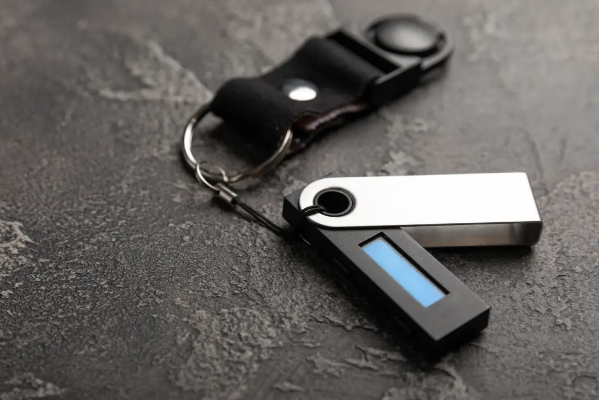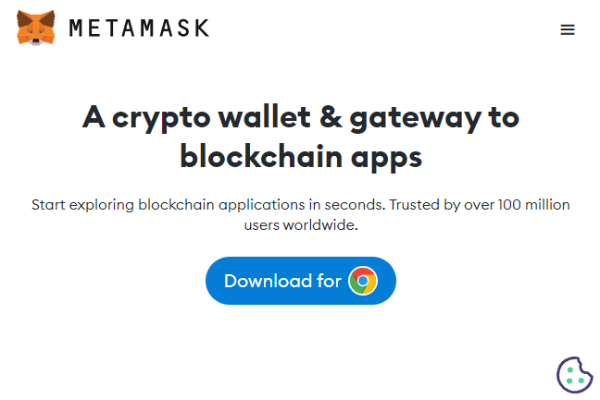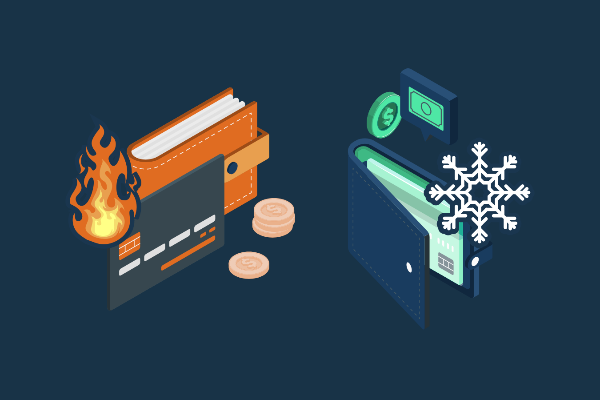Hot Wallet vs Cold Wallet 2024
Cryptocurrency has revolutionized the financial landscape, offering new opportunities and challenges. Central to this digital economy are wallets, the tools that store and manage your digital assets.
Two prominent types of wallets are hot wallets and cold wallets. Understanding the difference between hot wallet vs cold wallet is crucial for safeguarding your cryptocurrency.
Table of content
Hot Wallets
Definition and Characteristics
Hot wallets are akin to digital wallets accessible through devices connected to the internet. These include online wallets, mobile wallets, and wallets provided by exchanges. They are designed for convenience, enabling users to conduct frequent transactions swiftly.
Security Considerations
However, this accessibility comes at a price. Hot wallets are susceptible to hacking, as they are constantly connected to the internet. Multifactor authentication and encryption are essential security features, yet they remain exposed to phishing attacks even with these safeguards.
Cold Wallets
Definition and Characteristics
Cold wallets, in stark contrast, are offline storage solutions. This category includes hardware wallets and paper wallets. Their primary purpose is secure, long-term storage, making them ideal for users who prioritize safeguarding their assets over regular transactions.
Security Advantages
The paramount advantage of cold wallets is their immunity to online threats. Since they are not connected to the internet, they are impervious to hacking, phishing, and other cyber threats. Their security is further enhanced by the use of recovery seed phrases and private keys.
Key Facts
Here’s a list of key facts from the article hot vs cold wallet, you might want to know:
- Hot wallets are internet-connected and designed for convenience in frequent transactions.
- Cold wallets are offline storage solutions primarily for secure, long-term storage.
- Hot wallets are ideal for day-to-day transactions, trading on exchanges, and DApp usage.
- Cold wallets excel in secure, long-term storage of significant cryptocurrency holdings.
- Hot wallets are generally free to set up, but may incur transaction and exchange fees.
- Cold wallets may require an initial investment for hardware, but have no ongoing fees.
- Hot wallets require diligent security practices, including regular backups, strong passwords, and two-factor authentication.
- Cold wallets demand careful handling, with hardware devices and recovery seed phrases stored in secure locations.
- Choice between hot and cold wallets depends on individual preferences and use cases.
- Hot wallets offer convenience but are more vulnerable to online threats.
- Cold wallets prioritize security and are recommended for long-term storage.
FAQ
⭐ What is a hot wallet?
A hot wallet is a kind of digital wallet that is connected to the Internet and used for daily transactions and trading, allowing for easy access to cryptocurrencies.
⭐ What are the advantages of using a hot wallet?
The main pros of using a hot wallet include convenience, accessibility from any internet-connected device, integration with exchanges and DApps, and real-time transaction confirmation.
⭐ What is a cold wallet?
A cold wallet is a type of cryptocurrency wallet that is offline, meaning it is not connected to the internet. It is primarily used for secure, long-term storage of digital assets.
⭐ How secure are cold wallets?
Cold wallets are highly secure as they are not susceptible to online threats like hacking or phishing. They are considered one of the best ways to store cryptocurrency.
⭐ What are examples of hot wallets?
There are different types of hot wallets, including online wallets, mobile wallets, and wallets offered by exchanges.
⭐ What is the difference between hot wallet and cold wallet?
A hot wallet is a kind of digital wallet connected to the web, making it accessible for transactions but vulnerable to hacking. In contrast, a cold wallet is an offline storage solution, providing enhanced security by keeping private keys offline reducing the risk of unauthorized access.
Pros and Cons
If you are considering what to choose, here is a list of pros and cons of cold wallet vs hot wallet that might help:
Pros of Hot Wallets
✔️ Convenience and Accessibility
Pro: Hot wallets are easily accessible from any device with an internet connection, allowing users to manage their cryptocurrency portfolio on-the-go.
Explanation: This accessibility makes hot wallets ideal for users who need quick and frequent access to their funds for trading or everyday transactions.
✔️ Integration with Exchanges and DApps:
Pro: Hot wallets seamlessly integrate with cryptocurrency exchanges and decentralized applications (DApps), providing a seamless experience for trading and interacting with the broader crypto ecosystem.
Explanation: Active traders often prefer hot wallets due to the ease of transferring funds between exchanges and utilizing various DApps.
✔️ User-Friendly Interfaces:
Pro: Many crypto hot wallet providers offer user-friendly interfaces and intuitive designs, making them accessible to both beginners and experienced cryptocurrency users.
Explanation: The straightforward interfaces of hot wallets simplify the process of sending, receiving, and managing cryptocurrencies.
✔️ Real-Time Transaction Confirmation:
Pro: Transactions made through hot wallets are processed in real-time, providing immediate confirmation of the transaction’s success.
Explanation: This can be crucial in situations where timely transaction verification is essential, such as trading or making time-sensitive payments.
✔️ Cost-Effectiveness for Small Transactions:
Pro: Hot wallets are typically free to set up and do not require an initial investment, making them cost-effective for users with smaller cryptocurrency holdings.
Explanation: Hot wallets can be a practical and budget-friendly choice for users who primarily engage in smaller transactions or occasional trading.
Read more about a type of hot wallet in our article on Lightning Wallet.
Cons of Hot Wallets
⭕ Vulnerability to Hacking and Cyber Attacks:
Con: Hot wallets are constantly connected to the internet, making them susceptible to hacking, phishing, and malware attacks.
Explanation: This heightened exposure to online threats means that users must implement rigorous security measures to protect their funds.
⭕ Risk of Unauthorized Access:
Con: In the event of a security breach or if an unauthorized party gains access to a hot wallet, there is a risk of funds being compromised or stolen.
Explanation: Without proper security measures like strong passwords and two-factor authentication, hot wallets can be more susceptible to unauthorized access.
⭕ Dependence on Third-Party Providers:
Con: Users of hot wallets rely on third-party wallet providers or exchanges to manage their funds, which introduces an element of trust and dependency.
Explanation: If the provider experiences technical issues, outages, or security breaches, it can impact the accessibility and security of the user’s funds.
⭕ Less Secure for Long-Term Storage:
Con: Hot wallets are not designed for long-term storage, as their constant online presence exposes them to a higher risk of security breaches over extended periods.
Explanation: Users with significant cryptocurrency holdings may opt for cold wallets for a more secure storage solution.
⭕ Potential for Higher Fees:
Con: Some hot wallet providers may charge transaction fees, particularly when sending or receiving funds, which can add up over time.
Explanation: For users engaging in frequent transactions or trading activities, these fees can become a notable factor in the overall cost of using a hot wallet.
People who are into cryptocurrencies might also be interested in our other recent article, where we explain Distributed Ledger Technology in-depth.
Pros of Cold Wallets
✔️ Enhanced Security and Immunity to Online Threats:
Pro: Cold wallets are offline storage solutions, making them impervious to online hacking, phishing, and malware attacks.
Explanation: This heightened security makes cold wallets the preferred choice for users seeking to protect their cryptocurrency holdings over the long term.
✔️ Ideal for Long-Term Storage:
Pro: Cold wallets are specifically designed for secure, long-term storage of cryptocurrency holdings.
Explanation: They provide a fortress-like level of protection for significant amounts of digital assets, making them a top choice for holders who prioritize security.
✔️ Protection Against Unauthorized Access:
Pro: As cold wallets are not connected to the internet, the risk of unauthorized access is significantly reduced.
Explanation: This adds an extra layer of security, as cold wallets are not susceptible to online attacks or breaches.
✔️ Recovery Seed Phrases for Added Security:
Pro: Cold wallets often utilize recovery seed phrases, a series of words that can be used to restore the wallet in case of loss or damage.
Explanation: This feature provides an additional layer of security, ensuring that even if the physical wallet is lost, the funds can be recovered.
✔️ No Ongoing Fees:
Pro: Once acquired, cold wallets do not incur ongoing fees, making them a cost-effective choice for users with substantial cryptocurrency holdings.
Explanation: This can lead to significant cost savings in the long run compared to hot wallets, which may incur transaction fees over time.
Cons of Cold Wallets
⭕ Less Convenient for Day-to-Day Transactions:
Con: Cold wallets are less suitable for users who require frequent and immediate access to their cryptocurrency for day-to-day transactions.
Explanation: The offline nature of cold wallets means that accessing funds may involve a longer process compared to the instantaneous access provided by hot wallets.
⭕ Initial Investment for Hardware Wallets:
Con: Hardware wallets, a type of cold wallet, require an initial investment for the purchase of the physical device.
Explanation: While this cost is a one-time expense, it may deter users who are just starting out or have smaller cryptocurrency holdings.
⭕ Potential for Physical Loss or Damage:
Con: Since cold wallets are physical devices (in the case of hardware wallets) or paper documents (in the case of paper wallets), there is a risk of loss or damage.
Explanation: Users must take precautions to securely store and protect their cold wallet, as losing access to it can result in the permanent loss of funds.
⭕ Less Suitable for Active Traders:
Con: Cold wallets are not designed for active trading on exchanges or frequent transactions.
Explanation: Traders who require rapid access to their funds may find using a cold wallet less conducive to their trading activities.
⭕ Learning Curve for New Users:
Con: Setting up and using a cold wallet, especially a hardware wallet, may involve a learning curve for users who are unfamiliar with the technology.
Explanation: New users may need to invest time in understanding the setup process and security measures associated with cold wallets.
Use Cases and Suitability
Hot Wallets
Hot wallets excel in scenarios requiring frequent access and transactions. They are the go-to choice for day-to-day usage, trading on exchanges, and interacting with decentralized applications (DApps). Their seamless integration with various platforms makes them indispensable for active traders.
Cold Wallets
Cold wallets shine when it comes to secure, long-term storage. They provide an impenetrable fortress for your assets, making them ideal for holding significant amounts of cryptocurrency. If you’re a holder looking for peace of mind, a cold wallet is your best bet.
Accessibility and Convenience
Hot Wallets
Accessibility is a strong suit of hot wallets. They offer instant access to your funds, making them suitable for situations where quick transactions are paramount.
Moreover, they seamlessly integrate with exchanges, providing a convenient platform for trading activities. Additionally, mobile app compatibility ensures accessibility on-the-go.
Cold Wallets
On the flip side, cold wallets require a more deliberate approach. Accessing funds stored in a cold wallet involves a slightly longer process, as it necessitates the physical presence of the hardware wallet (in the case of hardware wallets) or retrieving the stored information (in the case of paper wallets). The initial setup may also have a learning curve for newcomers.
Cost Considerations
Hot Wallets
Setting up a hot wallet is typically free. However, users may encounter transaction fees, particularly when sending or receiving funds. Additionally, there’s exposure to exchange fees when using wallets provided by exchanges. These costs can accumulate over time, especially for active traders.
Cold Wallets
Cold wallets require an initial investment, especially in the case of hardware wallets. However, once acquired, there are no ongoing fees. This can lead to substantial cost savings over the long run, especially for users holding significant amounts of cryptocurrency.
Risk Management and Backup
Hot Wallets
Managing risk with hot wallets requires diligent attention to security practices. Regular backups of wallet data and secure storage of authentication credentials are imperative.
Users must also stay vigilant against potential compromises, as the constant online presence exposes them to a higher risk of attacks.
Additionally, it’s crucial to keep software and applications up-to-date to mitigate vulnerabilities. Employing strong, unique passwords and enabling two-factor authentication further fortifies the security of hot wallets.
Cold Wallets
Cold wallets, while significantly more secure due to their offline nature, still demand careful handling. For hardware wallets, the physical device should be stored in a secure location, ideally in a fireproof safe or safety deposit box.
The recovery seed phrase, a series of words used to recover the wallet in case of loss or damage, must be kept in an even more secure location, separate from the device.
For paper wallets, it is critical to generate them on a secure and offline device. Physical copies should be kept in secure, preferably waterproof, storage.
Additionally, users must be meticulous in handling the wallet’s private keys, ensuring they are never exposed online or to potential prying eyes.
Conclusion
In conclusion, the choice between a cold vs hot wallet hinges on individual preferences and specific use cases. Hot wallets are convenient for those who frequently engage in transactions and trading.
They offer quick access to funds and seamless integration with exchanges and DApps. However, this convenience comes at the cost of heightened vulnerability to online threats.
Cold wallets, on the other hand, prioritize security above all else. They are the preferred choice for long-term storage, especially for users holding substantial amounts of cryptocurrency.
Their offline nature provides a robust defense against hacking and phishing attempts, offering users unparalleled peace of mind.









